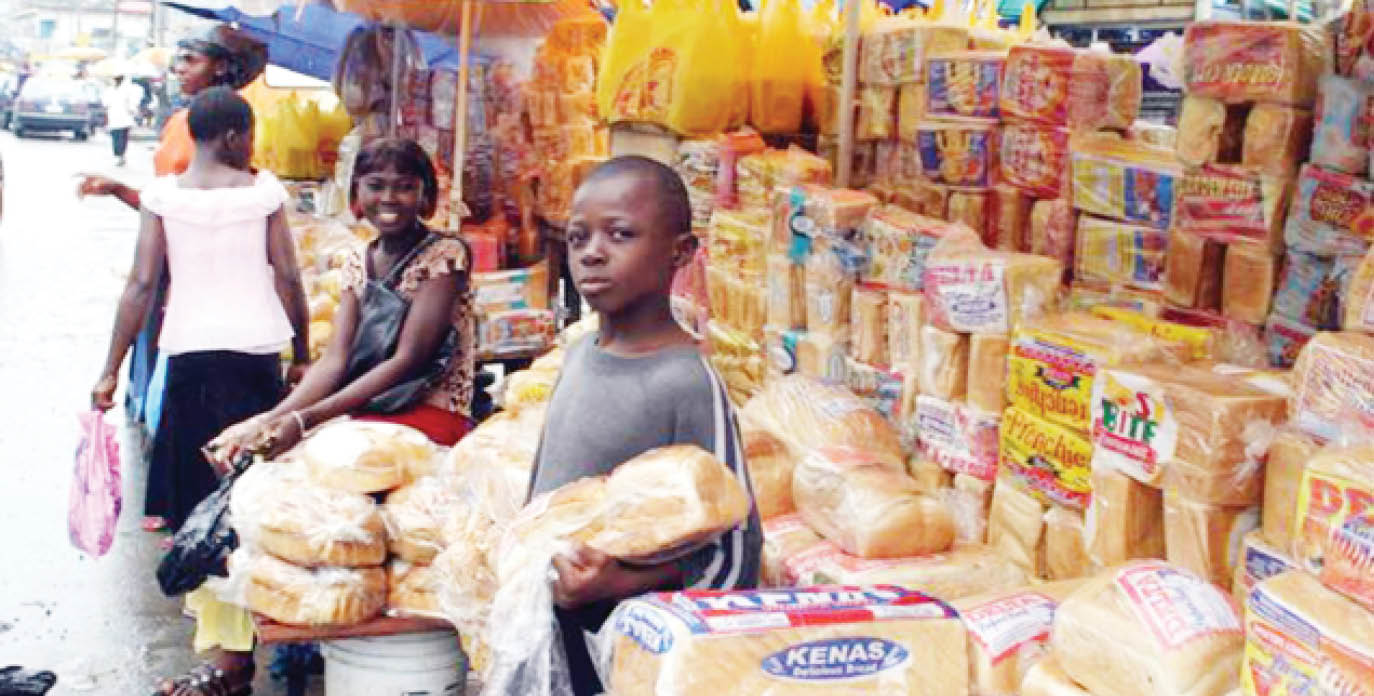Hardship: FCT residents shun bread, adopt alternatives
A cross section of residents of the FCT and its environs have said that they have become more creative to enable them to feed their families. The residents, on Wednesday, in interviews, said that the economic downturn had forced them to look for alternatives for breakfast as they were now forced to think outside the […]

Bread sellers on the street of Lagos
A cross section of residents of the FCT and its environs have said that they have become more creative to enable them to feed their families.
The residents, on Wednesday, in interviews, said that the economic downturn had forced them to look for alternatives for breakfast as they were now forced to think outside the box, opting for affordable and innovative options to kick-start their morning.
Mrs Favour James, a mother of five, said she had resorted to making “Tom Brown”, a mixture of soyabean, millet and groundnut, to start her family’s day.
She said, “We cannot afford tea now, so we now make use of an alternative called Tom Brown. I make it myself; it is made of soyabean, millet and groundnut. I fry and grind the mixture, add sugar and then use it in place of tea for breakfast.”
- Gov Idris appoints 21 new permanent secretaries, reposts 34 others
- We won’t tolerate violence, govs warn protesters
Mrs James, who said she had been struggling to make ends meet, added that Tom Brown was a game changer for her family.
She further said, “It’s cheaper, lasts longer and is healthier than the usual tea and bread. We’re coping, but it’s not easy.”
Another resident, Abraham Johnson, lamented that the economy had forced him to create an alternative for breakfast.
He said, “I never thought I would be making my own Milo substitute, but here we are. Though it is not the same, it can replace breakfast. I process my own Milo using cocoa. I also use soyabean powder as a substitute for tea.
“Foods breakfasts are now becoming expensive; a good loaf of bread is above N1,000. So, I just have to say that breakfast is not what it used to be.’’
Also, Babalola Sule, a chef, revealed that he now opted for his leftovers from dinner for breakfast.
He said, “I cook food in bulk and store the leftovers for breakfast, because with the prices of beverages now, one cannot afford a proper breakfast.
“Most times I prepare simple and affordable breakfasts because things have gone extremely high. “These alternatives may not be what we’re used to, but they’re better than going hungry. We’re adapting, and that’s the Nigerian spirit.”
Mrs Ann Oriba, a businesswoman, said that pap made from corn had become a “go-to breakfast” option.
She said, “The alternative I use for breakfast is pap. My mum farms corn and bean, so it makes pap for breakfast easier.
“It’s amazing how something as simple as breakfast can become a luxury, but we’re making do with what we have. Pap is filling and nutritious, and it’s become our new normal.” (NAN)
